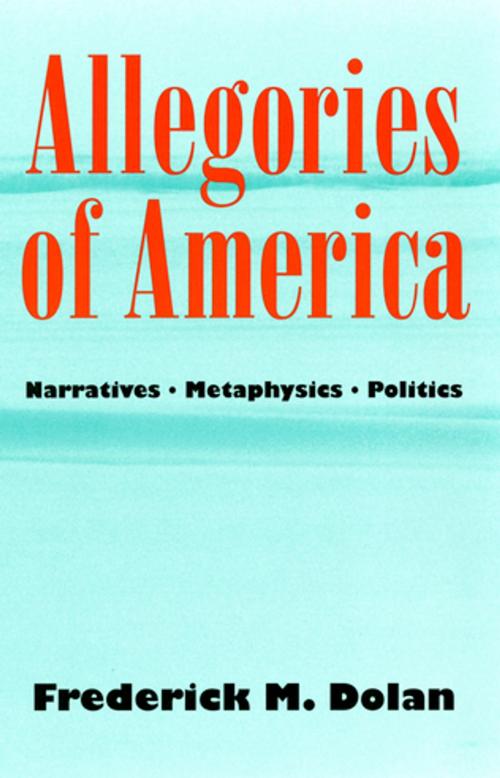Allegories of America
Narratives, Metaphysics, Politics
Nonfiction, Social & Cultural Studies, Political Science, Politics, History & Theory, History, Americas, United States| Author: | Frederick M. Dolan | ISBN: | 9781501726248 |
| Publisher: | Cornell University Press | Publication: | March 15, 2018 |
| Imprint: | Cornell University Press | Language: | English |
| Author: | Frederick M. Dolan |
| ISBN: | 9781501726248 |
| Publisher: | Cornell University Press |
| Publication: | March 15, 2018 |
| Imprint: | Cornell University Press |
| Language: | English |
Allegories of America offers a bold idea of what, in terms of political theory, it means to be American. Beginning with the question What do we want from a theory of politics? Dolan explores the metaphysics of American-ness and stops along the way to reflect on John Winthrop, the Constitution, 1950s behavioralist social science, James Merrill, and William Burroughs.
The pressing problem, in Dolan's view, is how to find a vocabulary for politics in the absence of European metaphysics. American political thinkers, he suggests, might respond by approaching their own theories as allegories. The postmodern dilemma of the loss of traditional absolutes would thus assume the status of a national mythology—America's perennial identity crisis in the absence of a tradition establishing the legitimacy of its founding.
After examining the mid-Atlantic sermons of John Winthrop, the spiritual founding father, Dolan reflects on the authority of the Constitution and the Federalist. He then takes on questions of representation in Cold War ideology, focusing on the language of David Easton and other liberal political "behaviorists," as well as on cold War cinema and the coverage of international affairs by American journalists. Additional discussions are inspired by Hannah Arendt's recasting of political theory in a narrative framework. here Dolan considers two starkly contrasting postwar literary figures—William S. Burroughs and James Merrill—both of whom have a troubled relationship to politics but nonetheless register an urgent need to articulate its dangers and opportunities. Alongside Merrill's unraveling of the distinction between the serious and the fictive, Dolan assesses the attempt in Arendt's On Revolution to reclaim fictional devices for political reflection.
Allegories of America offers a bold idea of what, in terms of political theory, it means to be American. Beginning with the question What do we want from a theory of politics? Dolan explores the metaphysics of American-ness and stops along the way to reflect on John Winthrop, the Constitution, 1950s behavioralist social science, James Merrill, and William Burroughs.
The pressing problem, in Dolan's view, is how to find a vocabulary for politics in the absence of European metaphysics. American political thinkers, he suggests, might respond by approaching their own theories as allegories. The postmodern dilemma of the loss of traditional absolutes would thus assume the status of a national mythology—America's perennial identity crisis in the absence of a tradition establishing the legitimacy of its founding.
After examining the mid-Atlantic sermons of John Winthrop, the spiritual founding father, Dolan reflects on the authority of the Constitution and the Federalist. He then takes on questions of representation in Cold War ideology, focusing on the language of David Easton and other liberal political "behaviorists," as well as on cold War cinema and the coverage of international affairs by American journalists. Additional discussions are inspired by Hannah Arendt's recasting of political theory in a narrative framework. here Dolan considers two starkly contrasting postwar literary figures—William S. Burroughs and James Merrill—both of whom have a troubled relationship to politics but nonetheless register an urgent need to articulate its dangers and opportunities. Alongside Merrill's unraveling of the distinction between the serious and the fictive, Dolan assesses the attempt in Arendt's On Revolution to reclaim fictional devices for political reflection.















